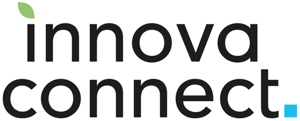For knowledge institutes
Consortium building & matchmaking

Increasingly, research funders require companies and other social parties to be actively involved in research proposals and to provide co-funding for the research. Innova Connect has an extensive network in the business community and supports you as a researcher in building a public-private research consortium.
>> Reference projects:

AES Perspective program ‘SoilProS’
In 2020, NIOO-KNAW initiated a proposal for an AES Perspective program in the field of measuring and managing soil biodiversity. In this funding instrument, the economic perspective of the intended innovation weighs heavily in the assessment. That is why intensive involvement of the business community is of great importance. Innova Connect has supported NIOO-KNAW in mapping out, and subsequently approaching, relevant companies and other organisations. The support from Innova Connect eventually led to the participation and expression of support from approximately 20 companies and other organisations.
For knowledge institutes
Proposal writing & lobbying
 Writing proposals is a time-consuming activity, costing researchers up to 30% of their time. Innova Connect offers support in writing proposals for research and innovation projects. This can vary from final editing to writing a complete proposal, based on the concepts and ideas of the researcher(s) involved. In addition to writing proposals, it may sometimes be necessary to put a subject on the agenda of funding organisations or to argue for sufficient budget for a large research program. Such lobbying opportunities are particularly relevant at the European and regional levels and in specific public investments.
Writing proposals is a time-consuming activity, costing researchers up to 30% of their time. Innova Connect offers support in writing proposals for research and innovation projects. This can vary from final editing to writing a complete proposal, based on the concepts and ideas of the researcher(s) involved. In addition to writing proposals, it may sometimes be necessary to put a subject on the agenda of funding organisations or to argue for sufficient budget for a large research program. Such lobbying opportunities are particularly relevant at the European and regional levels and in specific public investments.
>> Reference projects:

Investment proposal research infrastructure NPEC
In 2017/2018, Wageningen UR and Utrecht University jointly applied for a large-scale research infrastructure funding in the field of automatic phenotyping of plants, from the microbiome to the full-field crop (NPEC). The infrastructure is intended to facilitate research in public-private partnerships. Innova Connect has edited and refined the application for this investment. The application for NPEC, worth 22 million euros, was successful.
For knowledge institutes
Knowledge transfer & valorization

The importance of knowledge transfer and valorization of research is increasingly recognized. Research funders increasingly reserve budgets for activities that guarantee that newly generated knowledge not only leads to scientific publications, but is also picked up by companies and other social organisations. While the strength of most scientists lies in doing groundbreaking, innovative research, it is the passion of Innova Connect to ensure that results and insights from research ‘land’ in practice.
>> Reference projects:

Masterclass Future Proof Toolbox
The vision of the Ministry of Agriculture on the future of agriculture and horticulture in the Netherlands, launched in 2018, prompted Wageningen Academy to develop a new program with a new didactic concept for horticultural entrepreneurs. An important objective for the new Masterclass was to make the latest insights from scientific research more easily accessible to SMEs. How can SME entrepreneurs effectively use knowledge from research to make their company future-proof? Innova Connect supported Wageningen Academy in developing the concept and writing the project proposal.
For knowledge institutes
Training & coaching

Collaborating with companies and other stakeholders often requires new skills from scientists. Based on years of experience at the intersection of science and business, Innova Connect provides training in this area. Personal coaching programs are also possible.
>> Reference projects:

Public-private partnership training
In 2018, Innova Connect provided a public-private partnership training course for researchers at NIOO-KNAW. The central question in this training was: how do I, as a researcher, find private parties willing to support my research proposal? In addition to developing skills, the training also provided factual information about the organization of public-private partnerships in the context of the Dutch Topsector Policy and the National Science Agenda.

